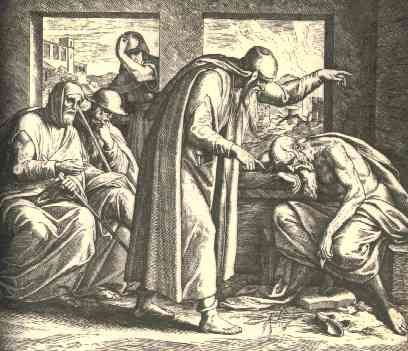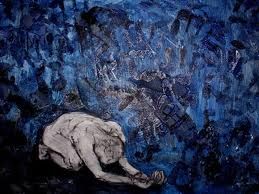False Prophet
New member
I think of the poem of the foot prints in the sand. As I look back behind me I see two sets of foot prints: mine and God's. But when I look back at my times of distress, I see only one set of foot prints. I wonder where was God during this time? God says, "There are only one set of foot prints during those times, because I carried you through those times of distress."
Lam.3
[1] I am the man who has seen affliction
under the rod of his wrath;
[2] he has driven and brought me
into darkness without any light;
[3] surely against me he turns his hand
again and again the whole day long.
[4] He has made my flesh and my skin waste away,
and broken my bones;
[5] he has besieged and enveloped me
with bitterness and tribulation;
[6] he has made me dwell in darkness
like the dead of long ago.
[7] He has walled me about so that I cannot escape;
he has put heavy chains on me;
[8] though I call and cry for help,
he shuts out my prayer;
We may feel like we are the only ones in the world with our problems and afflictions, but there is always somebody who is having a harder time; and many people are going through the same thing, or some have had to go through the same thing that we are going through now. We think that we are unique. Woe is Me! God doesn't love me. Why don't I just ask God for his help and direction?
Lam.3
[1] I am the man who has seen affliction
under the rod of his wrath;
[2] he has driven and brought me
into darkness without any light;
[3] surely against me he turns his hand
again and again the whole day long.
[4] He has made my flesh and my skin waste away,
and broken my bones;
[5] he has besieged and enveloped me
with bitterness and tribulation;
[6] he has made me dwell in darkness
like the dead of long ago.
[7] He has walled me about so that I cannot escape;
he has put heavy chains on me;
[8] though I call and cry for help,
he shuts out my prayer;
We may feel like we are the only ones in the world with our problems and afflictions, but there is always somebody who is having a harder time; and many people are going through the same thing, or some have had to go through the same thing that we are going through now. We think that we are unique. Woe is Me! God doesn't love me. Why don't I just ask God for his help and direction?


